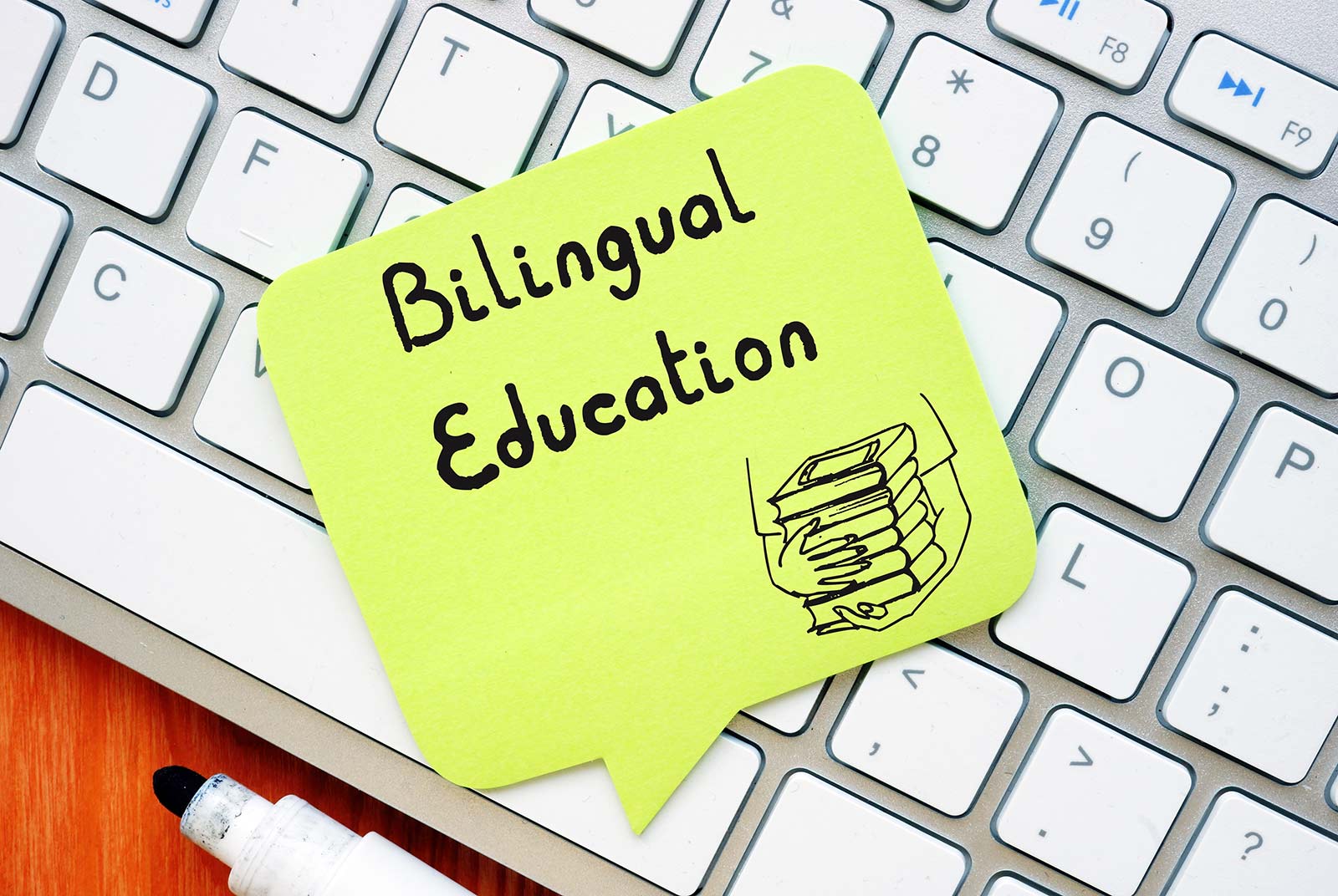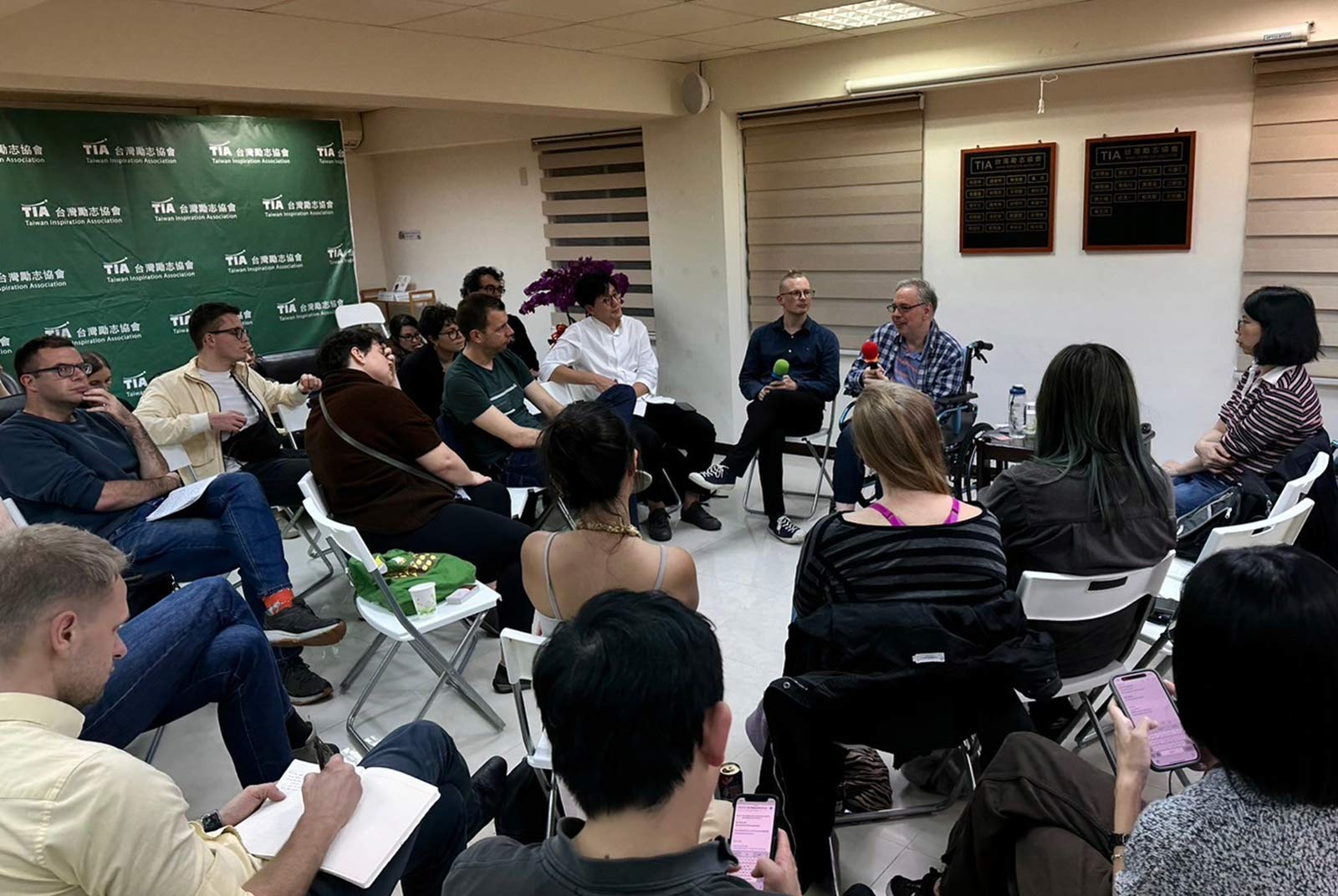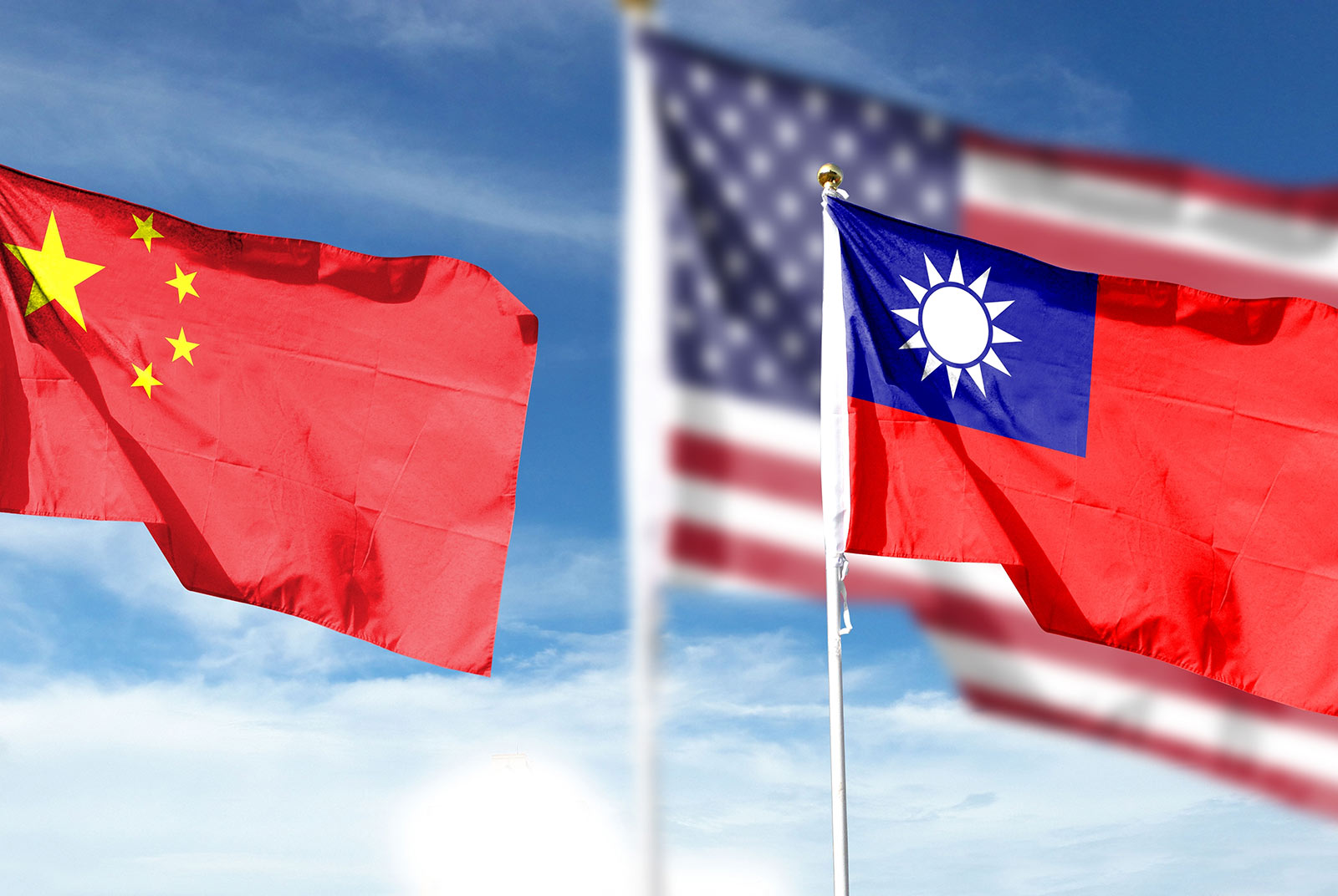Enroll at Your Own Risk – Taiwan’s so-called “Bilingual Schools”

Source:shutterstock
In this op-ed, the author provides a critical examination of Taiwan's burgeoning bilingual education programs. From unqualified teachers and inadequate communication to cultural insensitivity and a lack of a supportive environment. How can Taiwan’s education system reform its bilingual programs to prepare its youth for a globalized future?
Views
Enroll at Your Own Risk – Taiwan’s so-called “Bilingual Schools”
By Fun Taiwan Kidsweb only
The program director of the bilingual program can’t or won’t communicate with parents in English.
The English teacher doesn’t arrive until 2 months after the school year starts, so the students watch YouTube during English class.
Being asked, "Why is your Chinese so bad?" or worse "If you don't like it here, just go back to your country!"
These are just some of the things your child might encounter if you are daring enough to enroll your child into one of Taiwan's bilingual programs sprouting up all over the place – now that Taiwan aims to be bilingual like Singapore by 2030.
When our family of five arrived in Taiwan from Hong Kong back in 2019, we were ready to get acclimated, get the kids fluent in Mandarin, and fully assimilate into our new life in Taiwan. My children's native language was English and they attended international schools in Hong Kong. Their reading and writing of Chinese were not on par with children their age in Taiwan.
My oldest child, M, was 9 years old at the time. Switching from an international school in Hong Kong to a public school in Taiwan was not easy. You could say that he was thrown into the deep end of the pool and told to swim. Looking back, we were so lucky to have had such wonderful teachers in his elementary school, who were patient and kind. I was pleasantly surprised that, with the help of his teachers and classmates, M was making new friends, learning Mandarin quickly, and enjoying himself.
When the question of middle school came up, I knew his Chinese would not survive in the local curriculum, and we didn't get into any international schools. I surveyed some "bilingual programs" at the local schools. One program in Nankang caught my eye. A parent had written about it in a Facebook group, and she had a relatively positive experience. I visited their Facebook page to find out more. The bilingual program hosts an international section, where they accept children who are arriving in Taiwan from overseas. Five subjects are taught in English and the international students would sit in the same classroom with local students for some interaction and exchange. The student body looked like a diverse group of kids from different backgrounds and countries. We decided to roll the dice and go with it.
This is part of the story where - If I could go back in time and talk myself out of it, I would. 1.5 years later, my son is no longer attending this school, but the experience was so disappointing, unpleasant and at times heartbreaking.
I want to share our experience publicly and shed some light on it, so that parents who are considering these schools should enter with caution. I also hope that the teachers who were unkind to the kids realized that what they said and did was wrong - certainly not appropriate coming from an educator. Lastly, I hope the Ministry of Education reads about our experience, starts asking questions, and takes steps to improve Taiwan’s bilingual program.
Plaques everywhere don’t make a school bilingual
 Source: Fun Taiwan Kids
Source: Fun Taiwan Kids
At first glance, when you enter the school, you won't miss all the signs and posters saying "Bilingual School!!!" Alright, I get it, they want to scream it out and make sure everyone and their grandmothers know that it's a bilingual school.
The plaques and the signs on the wall were in both English and Chinese. Unfortunately, in my opinion, that might be the most bilingual part of the school. The international classroom was bright, newly renovated, which presented a sharp contrast to the rest of the facilities at school.
The subject teachers for the curriculum were hit-and-miss. I remember walking away from the parent teacher’s night impressed with some - the Math teacher, for example, had a Ph.D. in Math, and was passionate about teaching, but worried about others. As the semester progressed, the first red flag was the English test that the students were given where they were asked to spell cats. CATS?! Mind you this was a 7th-grade English class for the "international section" where the kids' native language was English and had taken some sort of assessment to be admitted.
But the real signs of trouble were the bullying that happened at school that I would hear about from my son. Not just kids bullying each other, but also teachers being awful and even downright mean to the students.
“If you don’t like it here, go back to your country.”
The teachers and the curriculum were a huge problem. However, the bigger problem is the mindset of the educators at the school. They are running a bilingual program that touts innovation but carries on with a dogmatic mindset and wants to pin every student into the same pigeonhole.
M is a rambunctious 13-year-old boy. He had a hard time being told he can't be too loud, he can't run in the hallway, or that he has to take a nap on his desk like the rest of the class - because at 13, he doesn't nap anymore.
The most upsetting thing that happened was when my son and his group of friends were being too boisterous, they were called to a room to be scolded by the program director in Chinese and another teacher translated everything he said. What was not lost in translation? Words like "If you don't like it here, go to TAS (Taipei American School)!" or worse - "If you don't like it here, go back to your own country!" The problem? One of the boys was from Ukraine. His mother and him were in Taiwan, while the father stayed behind to fight the war. Other things that were supposedly said to him included, "Your English is not good, your Chinese is not good, what are you doing here?" Several parents were furious with this and took it to the principal. I'm not sure what came of it. I just know that the boy left quickly after a year. I don't blame him. This is NOT the Taiwanese hospitality that we're so proud of.
We went back for 8th grade because we had no other options. At the last minute, the art teacher was made into their homeroom teacher. M was worried. He said the art teacher gave him a really hard time last year. He was right. The art teacher would call me excessively to complain about M’s misbehaving, tardiness, or just bad behavior in general. He would complain to other parents about how M was a bad influence on other kids. I’ll be the first to admit that M is not the model student.
However, as mischievous as he was, M and his friends didn't deserve the harsh words. One time, the scout teacher scolded M and his friend for not being prepared for her class. "My words are like farts to you? Did your mother not give birth to you properly?" She hurled these insults that were very personal. This saying in Chinese is equivalent to suggesting, “Did your mother drop you at birth?” It's the kind of insult that you hear in a bar brawl, or a street fight - not what you'd expect from an educator.
What a truly international program really means
So, my husband and I moved things quickly and pulled M out of the school. He left mid-year to go abroad, and so did 4 other students in the international class. I heard that the art teacher is relieved and would tell the other parents that the class will finally have order now that M is gone. Yes - He will get the order he wants, and silence too for that matter, because half of the class is gone.
This bilingual school is being touted by the Ministry of Education as a shining example of Taiwan's new, innovative program that will help Taiwan become Bilingual by 2030. The scout teacher is considered a model teacher because she has taken a few media interviews to talk about how she is learning English and embracing a growth mindset for a new way of teaching.
I wholeheartedly agree and support Taiwan to become bilingual by 2030. We need our young talents to be fully fluent in English to become competitive on the world’s stage. However, to raise the next generation of talents to be bilingual, it is not enough to put English signs all over the school, call it international or bilingual and think that the work is done.
From a parent’s perspective, a successful bilingual program must have 3 key elements – international curriculum, qualified teachers, and an innovative culture.
Even so, there is yet a consensus for the curriculums at Taiwan’s bilingual schools. I.B, or AP programs are popular with Taiwan’s private schools but not offered at these experimental schools. As parents, we are not demanding that public schools offer either one of these programs. We simply hope the curriculum should match the academic standards of other English-speaking countries for the same grade levels. This is to ensure that the students are academically prepared for higher education should he/she chooses to stay in Taiwan or go abroad.
Once the curriculum is set, we need qualified teachers who are fluent in English, and subject matter experts in the subjects that they teach. In addition, teachers and administrators need to be proficient academically, and mentally to lead a group of international kids, who were raised to have an opinion, to ask tough questions and challenge the status quo.
Crystal, an American mother of two, ages 5 and 8, has enrolled her children into public, private, and experimental schools in Taipei since arriving in Taiwan two years ago. According to her, identifying a suitable lead for the bilingual program is essential for its success. “To truly serve the students, both local and foreign, it is imperative that the director of the bilingual program possess a thorough understanding of cross-cultural differences and communication to lead and manage interactions among the three stakeholders: the students, their families, and the teachers,” she said.
Being bilingual is an obvious prerequisite for that depth of understanding. If the director does not possess all the necessary skills, Crystal recommends hiring a foreign co-director to ensure the program does not fail the school community.
Thirdly, perhaps the most important, yet the most challenging part, is fostering an innovative culture that encourages students to be engaged, creative and think critically. As we enter a new digital age - the era of AI, asking the right questions, issuing the right prompt has never been more important. Without a culture that encourages students to ask questions, the education system ends up rewarding the students who can memorize and test, but are unable to think outside the box.
Innovation sometimes comes in the form of disruption. For this school, the disruption came in the form of M and his friends.
The question is – will they take the learnings from this experience to make things better for the next class. Or will they celebrate the so-called peace, go back to the way they have been for the last 30 years, award students who follow the rules, and only celebrate high scores on the exams?
If so, then you are not moving forward, nor backward, but staying exactly where you are, the status quo.
(This piece reflects the author's opinion, and does not represent the opinion of CommonWealth Magazine.)
About the Author:
Born in Taiwan, raised in the US, lived in Hong Kong, Singapore and now resides in Taipei, Blogger Fun Taiwan Kids is a working mother of three in the tech industry. Her career background spanned tech, entertainment, journalism, and public affairs. Fun Taiwan Kids is her passion project that she hopes to build as the ultimate guide to having Fun in Taiwan with your Kids! A fervent believer that wine is the key to great parenting, her passions include technology, film, music, fashion, food, travel, lifestyle, and above all, her family.






